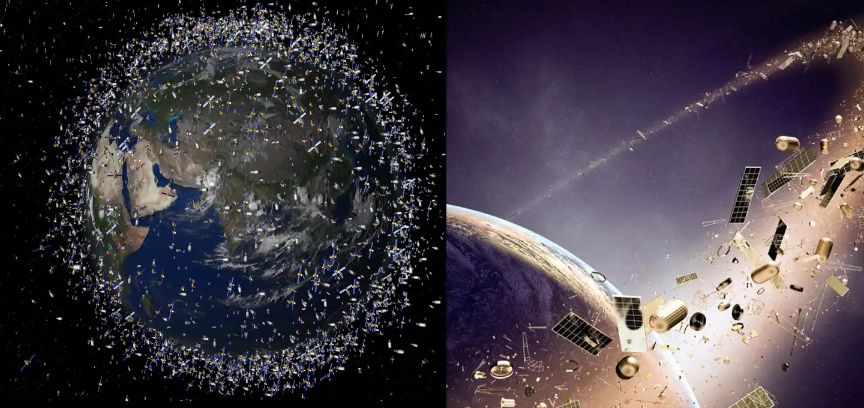Space Junk Cleanup: Tackling Orbital Debris
2 min read
15 May 2024
The exploration and utilization of outer space have led to remarkable technological advancements and scientific discoveries. However, these endeavors have also left behind a growing problem: orbital debris, often referred to as "space junk." These defunct satellites, spent rocket stages, and fragments from previous missions pose a significant threat to the safety of both crewed and uncrewed spacecraft. In this article, we will explore the issue of orbital debris, its impact, and the efforts being made to clean up Earth's crowded orbit.
The Orbital Debris Challenge
Orbital debris consists of objects ranging from tiny paint flecks to spent rocket stages and defunct satellites. These objects orbit the Earth at high speeds, posing a collision risk to operational spacecraft. Key challenges associated with orbital debris include:Collision Risk: Even small pieces of debris can cause catastrophic damage when colliding with operational satellites or spacecraft. Such collisions can create even more fragments, exacerbating the problem.

International Cooperation: Orbital debris is a global issue, and addressing it requires cooperation among space-faring nations. Clear guidelines and international agreements are essential for effective debris mitigation and cleanup.Space Traffic Management: As the number of satellites in orbit continues to increase, managing space traffic to avoid collisions becomes more complex. Effective space traffic management is crucial for debris avoidance.
International Cooperation: Cooperation among space-faring nations is essential, as debris is a shared problem. Clear protocols for sharing data and avoiding collisions need to be established and upheld.Preventing Future Debris: Preventing the creation of new debris is equally important. This requires continued adherence to debris mitigation guidelines and responsible space operations.Public Awareness: Raising public awareness about the issue of orbital debris and its potential impact on space activities can garner support for cleanup efforts.
Efforts to address orbital debris are gaining momentum as the space industry continues to expand. The success of upcoming ADR missions, like ClearSpace-1, will be pivotal in demonstrating the feasibility of debris removal. Additionally, advances in space traffic management and debris monitoring will contribute to a safer space environment.
Ultimately, cleaning up orbital debris is not only a matter of safety but also one of preserving the long-term sustainability of space for future generations. While the challenges are substantial, the collaborative efforts of space agencies, organizations, and nations around the world hold promise for a cleaner and safer orbital environment. The race to tackle space junk is a race for the preservation and responsible stewardship of Earth's orbits, ensuring that space remains a resource for scientific exploration, technological advancement, and international cooperation.



